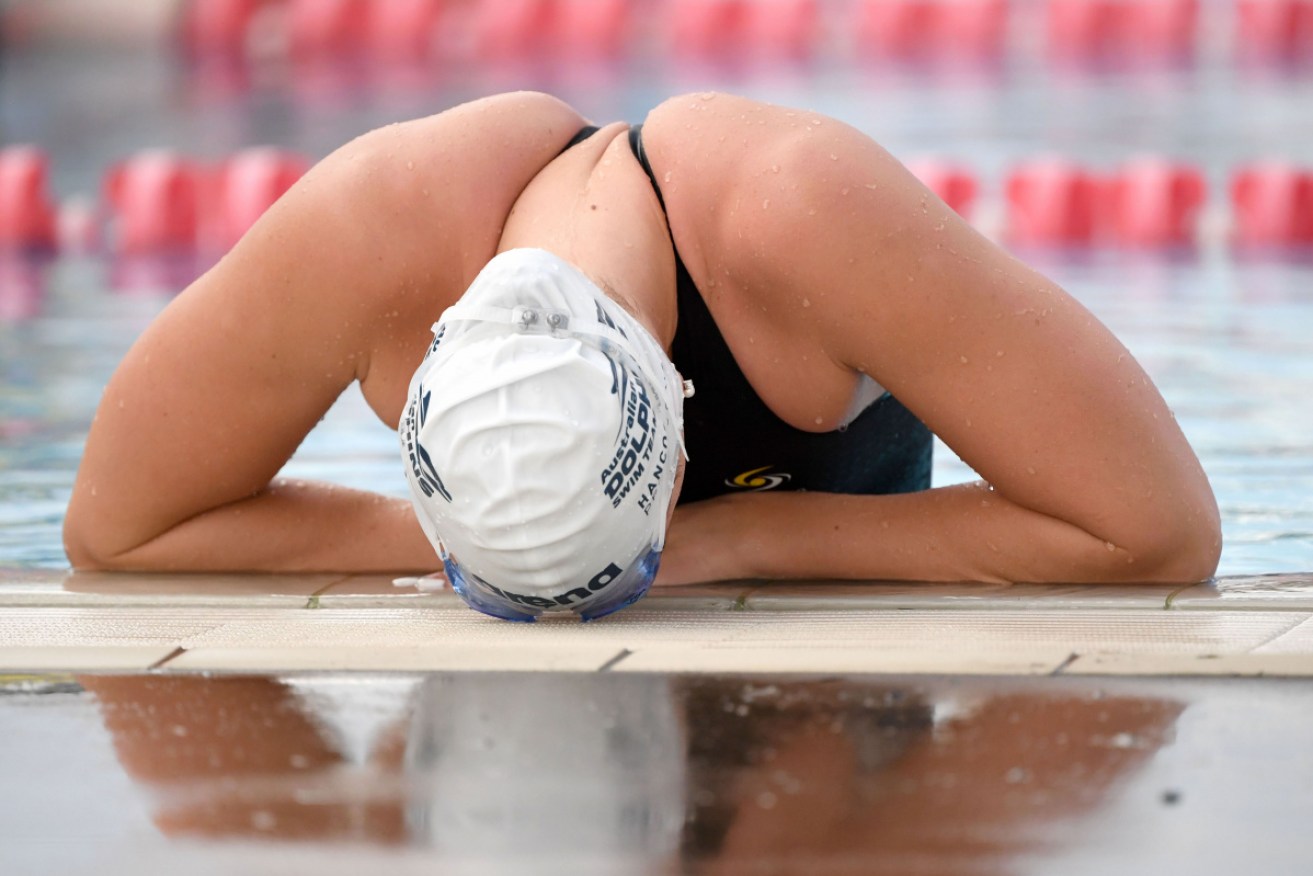Swimming: Mack Horton a mushroom, Shayna Jack may have ingested one


Shayna Jack in a pensive moment. Photo: Getty
Swimming Australia has had a shocker – with cold water definitively splashed on what should have been a positive world championships.
Not only did the sport fail to find a remedy for its free-to-air broadcasting rights fiasco until the eleventh hour, but it failed to fully inform its athletes about a positive drug test from one of its own.
Argue the semantics all you like about the differences in Mack Horton’s very public stance against Chinese swimmer Sun Yang and the positive test returned by his Dolphins teammate Shayna Jack, but the rest of the world is unlikely to buy it.
It has been a baptism of fire for Swimming Australia chief executive Leigh Russell, who took on the top job after time as CEO of Netball Victoria, Melbourne Vixens and as general manager of people and culture at Essendon Football Club.
Asked by reporters if she had her “head in her hands” when Horton was making his anti-drugs stand in front of the world, Russell replied in the affirmative.
“Yes, it was such a difficult one,” she said. “I absolutely support Mack. He’s entitled to say and do on an issue that he is passionate about and we are too. This has not changed our thinking on a zero-tolerance approach or our policy.”

Silver medallist Mack Horton did not mount the podium next to gold medallist Sun Yang, of China, over drug cheating claims. Photo: Getty
It’s certainly a good thing that Swimming Australia has tried to offer support and understanding to a young swimmer facing a monumental blot on a promising career.
Hopefully she has good people in her corner and all the help she needs.
Jack has indicated she’ll fight for her Olympic dream and her integrity – and so she should – but perhaps we’d all shift a little easier in our poolside chairs if Australian athletes and officials offered a consistent approach to those who have tested positive.
Sure state-sanctioned drug cheating has long been a thing, and we all know the nations and the athletes under that cloud, but let’s also note the Shane Warne ‘My mum gave it to me’ defence appears alive and well in Australian sport.
Australia’s most Teflon-coated sports star received a 12-month ban in 2003 for taking a banned diuretic that could be used as a masking agent, but our bloke took it to avoid fluid retention and improve his natural good looks.
“One positive out of this situation is that I hope no other athlete makes the same innocent mistake as me,” Warne said at the time.
Get it, Australians are victims, not cheaters.
Russell’s former AFL employer is only now emerging from the dubious legacy of a supplements program that returned no positive drug test, but was definitively found by WADA to have involved a systematic doping regime.
That issue was contested to the bitter end, the Court of Arbitration for Sport in Switzerland, and still divides opinion depending on whose side you are on.
But allegiences should not matter. The WADA guidelines are clearcut. An athlete is responsible for what is in their system.
It is ironclad and Australian sports fans seem to not get it when one of our own comes up short.
Yes, there can be extenuating circumstances. Yes, there may be foreign ingredients in supplements and food, but elite athletes have access to a wealth of information and counsel to assess this before coming unstuck.
“My understanding from Shayna is she doesn’t know how she’s come into contact with the drug,” Russell told reporters of the drug Ligandrol – used to aid muscle growth and treat osteoporosis – that was found in Jack’s system.
“She’s trying to find a reason for this substance in her body. Quite rightly she’s asking the question about perhaps what might she have ingested that is contaminated.”
At this stage the finger of blame has been pointed at dubious supplements and even mushrooms.
Jack’s manager Phil Stoneman told the ABC Jack did not consume the banned substance through a supplement pill or tablet.
“It could be meat. It could be mushrooms. It could be anything. It could be something in a bottle,” Stoneman said.
Horton now knows all about being a mushroom.
Swimming Australia made his protest against drugs in sport look overcooked and a few days old.
Again, it gets back to elite competitors ensuring everything they do is elite – especially what’s ingested.
People with peanut allergies can eat at Thai restaurants, but it surely falls into ‘You knew the job was dangerous’ when relying on someone else telling you what the utensils have been used to cook with.
Oh, and swimmers, cricketers, footballers, weightlifters and professional farnarklers – you want to be innocent … don’t trust your mum’s cooking either.








